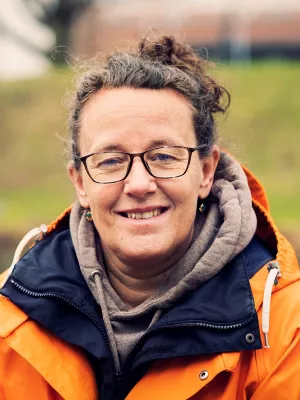
Johanna Alkan Olsson
Social environmental scientist

Working on the boundaries—How do science use and interpret the nature-based solution concept?
Author
Summary, in English
Nature-based solutions (NBS) is the latest contribution to the green concept family. NBS is defined as actions based in nature addressing societal challenges. In this study, we lean on the concept boundary object, broken down into three analytical categories: use, core ideas and granularities, to explore the cohesive and fragmenting powers of the NBS concept, and discuss its future role in green space governance. The study is based on a structured, qualitative review of 112 scientific peer-reviewed publications that use the term NBS. Most publications are from 2017 or later, highlighting the novelty of the NBS concept. The concept has a strong footing in the European urban context. Flood mitigation and functional ecosystems and biodiversity conservation are the most targeted sustainability goals in the publications, and a diversity of solutions are considered. There is a close link between the NBS concept, green infrastructure, and the ecosystem service concept, indicating a path dependency in its uptake and use. The publications demonstrate a low level of integration of the NBS concept (i.e. it is commonly used as a buzz word). Most empirical studies focus solely on environmental benefits delivered by NBS, and few studies assess social, economic, and environmental benefits together, which is a central ambition of the concept. We conclude that the NBS concept is working on the boundaries between different scientific disciplines and between science and policy. Depending on how the research community deals with identified temporal, epistemological and ontological granularities, we conclude that the concept has three potential developmental pathways; broader and deeper, biased with stickiness to older green concepts and an empty buzz word.
Department/s
- Centre for Environmental and Climate Science (CEC)
- BECC: Biodiversity and Ecosystem services in a Changing Climate
- The International Institute for Industrial Environmental Economics
Publishing year
2019
Language
English
Publication/Series
Land Use Policy
Links
Document type
Journal article
Publisher
Elsevier
Topic
- Other Social Sciences
- Infrastructure Engineering
Keywords
- Boundary objects
- Ecosystem services
- Green infrastructure
- Green space governance
- Land-use
- Nature-based solutions
Status
Published
Project
- Nature-based Solutions for Urban Challenges
ISBN/ISSN/Other
- ISSN: 0264-8377